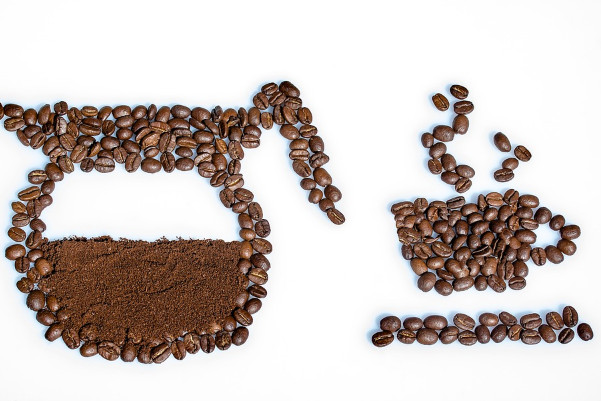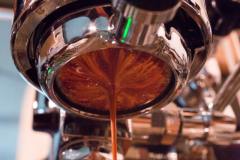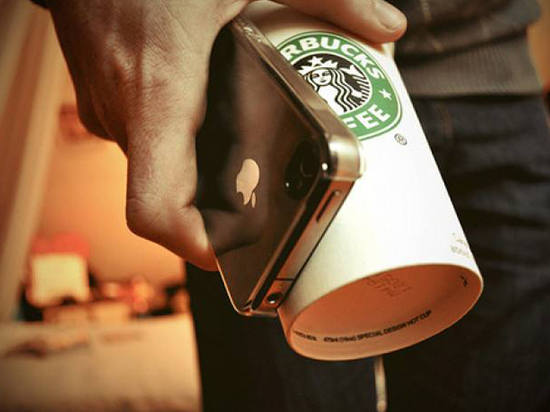Drinking coffee can improve memory and prevent cancer. Hot coffee is the cause of cancer.

For professional baristas, please follow the coffee workshop (Wechat official account cafe_style)
Research from Johns Hopkins University (Johns Hopkins University) has found that drinking one or two cups of coffee a day can not only help people wake up, but also help improve memory. The World Health Organization (WHO) research team pointed out that drinking coffee regularly does not cause cancer and may even prevent at least two types of cancer.
This new conclusion not only overturns the previous belief that coffee may cause cancer, but also points out that the real cause of cancer may be the habit of drinking overheated drinks.
WHO's International Agency for Research on Cancer (IARC) gathered 23 scientists from various countries and reviewed more than 1000 studies. In a report published in the Lancet Oncology, the evidence suggests that coffee is less likely to cause cancers such as breast, prostate and pancreatic cancer.
Dana Loomis, deputy leader of the agency's carcinogen classification project and lead author of the study, says there is insufficient evidence that coffee may cause cancer.
In addition, drinking coffee may also reduce the incidence of liver and uterine cancer. In the latest report, the team pointed out that each cup of coffee drunk every day can reduce the risk of liver cancer by 15%.
The reason why coffee may help prevent cancer is unclear, but coffee has shown a strong antioxidant effect in clinical trials and has been found to promote cancer cell death in the laboratory.
International research: having a cup of coffee can improve memory:
The researchers asked 160 infrequent coffee drinkers to take a test. They looked at photos of seahorses, baskets, saxophones, etc., and were asked to identify whether the items belonged to indoor or outdoor. Five minutes later, some people took 200mg caffeine pills, the equivalent of two cups of espressos, while others took non-caffeinated placebo pills.
Then 24 hours later, the two groups looked at another batch of pictures, which contained the old pictures they had seen the day before, but only slightly changed from the new ones, to test whether the two groups could distinguish between the previous day's pictures.
The results showed that both groups were able to identify which pictures were from the previous day and which were new ones, but those who took caffeine pills were more able to identify the correct pictures from similar pictures.
Research leader Michael Yassa, who published the study in the journal Nature Neuroscience, said: "the results of this experiment tell me that I should continue to drink my coffee. "it has substantial benefits for learning and memory, and other studies have also mentioned the relationship between coffee and longevity and can delay Alzheimer's disease.
However, experts also warn that caffeine can have certain side effects on the human body, such as nervousness or anxiety, so it is still necessary to drink a certain amount of caffeine.
In 1991, the team classified coffee as "possibly carcinogenic", but many studies have since confirmed that regular coffee drinkers have lower rates of heart disease, type 2 diabetes, neurological diseases and several cancers.
In the dietary guidelines issued in 2015, the panel also believes that there is strong evidence that drinking 5 cups of coffee a day will not cause harm to the body, and that drinking a moderate amount of coffee may help reduce chronic diseases.
A report from the World Cancer Research Fund points out that drinking coffee can prevent a variety of cancers.
However, instead of strongly recommending coffee, the team classified coffee as a category 3 carcinogen: insufficient epidemiological evidence and animal experimental evidence was insufficient or could not be classified into other categories. Such substances also include fluoride, low-frequency magnetic fields and toluene.
The report also points out that scientists believe that drinking "very hot" drinks (more than 65 ℃) is the possible cause of cancer, as studies have shown that this behavior is associated with esophageal cancer. Hot drinks can damage cells on the surface of the throat and thus provide a stage for cancer cells to grow.
Important Notice :
前街咖啡 FrontStreet Coffee has moved to new addredd:
FrontStreet Coffee Address: 315,Donghua East Road,GuangZhou
Tel:020 38364473
- Prev

Another key of Espresso "grinding" blade selection does not need to select bean grinder
Professional barista communication please pay attention to the coffee workshop (Wechat official account cafe_style) small boiler buried in the big boiler, almost the common configuration of most commercial coffee machines, and some brands adopt the design of large and small boilers, but for relatively small domestic users, that small boiler as high as 2-3 liters may be a pot of stagnant water that does not circulate at a constant temperature.
- Next

In order to make you better use iPhone 8 X to install X Starbucks really spelled it!
Professional barista communication Please follow Coffee Workshop (Wechat official account cafe_style) Starbucks was the first company to support PMA wireless charging protocol and standard, and even provided hardware support for the development of this wireless charging protocol. In most Starbucks stores in North America, phones that support PMA wireless charging can be charged on the desk. But Apple released iPhone 8 and iPhone.
Related
- The ceremony is full! Starbucks starts to cut the ribbon at a complimentary coffee station?!
- A whole Michelin meal?! Lucky launches the new "Small Butter Apple Crispy Latte"
- Three tips for adjusting espresso on rainy days! Quickly find the right water temperature, powder, and grinding ratio for espresso!
- How much hot water does it take to brew hanging ear coffee? How does it taste best? Can hot water from the water dispenser be used to make ear drip coffee?
- What grade does Jamaica Blue Mountain No. 1 coffee belong to and how to drink it better? What is the highest grade of Blue Mountain coffee for coffee aristocrats?
- What are the flavor characteristics of the world-famous coffee Blue Mountain No. 1 Golden Mantelin? What are the characteristics of deep-roasted bitter coffee?
- Can I make coffee a second time in an Italian hand-brewed mocha pot? Why can't coffee be brewed several times like tea leaves?
- Hand-brewed coffee flows with a knife and a tornado. How to brew it? What is the proportion of grinding water and water temperature divided into?
- What is the difference between Indonesian Sumatra Mantinin coffee and gold Mantinin? How to distinguish between real and fake golden Mantelin coffee?
- What does bypass mean in coffee? Why can hand-brewed coffee and water make it better?

